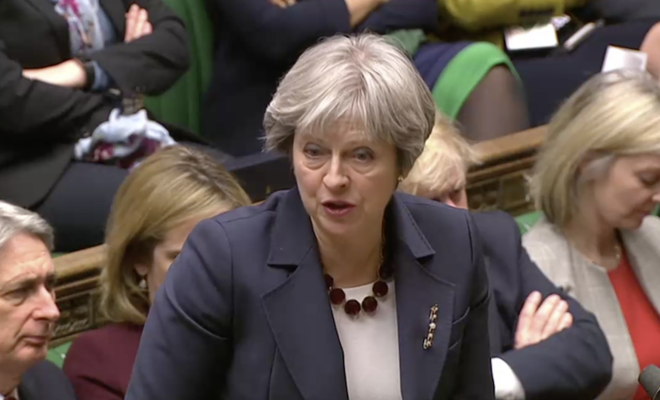
WASHINGTON (TIP): President Trump’s deal making expertise failed to convince many Republican Congressman that the Republican Healthcare Bill was any better than Obamacare. There has been a feverish activity in the Republican camp to muster enough support to pass the bill in the House on March 23. President Trump visited the Capitol, meeting with Congressmen, held a meeting with them in the White House to impress upon them how important it was to replace Obamacare with a Republican Healthcare. But, until late in the afternoon, the numbers required to pass the bill seemed to elude Speaker Ryan and President Trump.
First, Speaker Ryan did not hold the proposed press conference, and later, it was announced that the vote on the healthcare bill was postponed.
The announcement of the delay appeared to catch even the president unaware. Moments after the news broke, Trump told a group of truckers at the White House that the vote would still be held on Thursday. “We’ll see what happens,” he said. “It’s going to be a very close vote.” Earlier in the day, Press Secretary Sean Spicer was guaranteeing a victory. “It’s gonna pass. So, that’s it,” he told reporters.
The move was an indication that a series of meetings Trump and Speaker Paul Ryan had with reluctant members in the party’s conservative and centrist wings had failed to achieve a consensus. Members of the House Freedom Caucus left a meeting with the president early in the afternoon saying there was “no deal” as they pushed Ryan to move the bill further to the right. And for Trump and Ryan, the delay dashed their hope of voting to dismantle the law on the seventh anniversary of its signing by former President Barack Obama.
GOP leaders summoned all 237 Republicans to a 7 p.m. meeting in the Capitol to discuss possible changes to the American Health Care Act, and lawmakers said the party still hoped to hold procedural votes on the bill on Thursday night, with final passage on Friday. But even that plan was tentative, and tensions within the Republican conference were rising as the chances grew that the GOP would whiff on its longstanding promise to repeal and replace Obamacare.
“The days of talking are over. It’s time to vote,” said Representative Bradley Byrne of Alabama, a strong supporter of the GOP plan. “The longer we wait, the worse our chances get.”
Leadership officials were increasingly frustrated with the Freedom Caucus, which withheld its support even after winning Trump’s support for a change that would strip out Obamacare’s requirement that insurance plans cover maternity care, mental-health treatment, preventive services, and a host of other “essential health benefits” defined in the law. One leadership aide questioned whether Representative Mark Meadows of North Carolina, the group’s leader, could deliver its roughly three dozen votes after personally promising the president he would. A Meadows aide said the Freedom Caucus was pushing for even broader changes that would repeal the insurance regulations forbidding discrimination based on preexisting conditions and lifetime-coverage limits. But that is a non-starter for many House Republicans, and party leaders believe a bill that broad could not pass.
Members like Byrne wanted the leaders to simply put the bill up for a vote, gambling that many of the rank-and-file lawmakers who have withheld their support wouldn’t dare let it go down in defeat in such dramatic fashion. “As a Republican, you’ve got one choice,” he said. “You either are going to vote with Donald Trump to repeal and replace Obamacare, or you’re going to vote with Nancy Pelosi to defeat the only bill to repeal and replace Obamacare. If you’re a Republican, that’s a pretty simple choice.”
While the Freedom Caucus bargained for more conservative provisions, more moderate Republicans were peeling off the bill. Representatives Jaime Herrera Beutler of Washington state and Mark Amodei of Nevada declared their opposition on Thursday, and Trump planned to meet at the White House with the Tuesday Group, a coalition of moderates.
Thursday’s push came after Ryan spent more than two hours Wednesday night meeting with more than a dozen members of the Tuesday Group and lawmakers representing swing districts. The pow-wow was inconclusive. The Republicans slipped out of the Capitol without speaking to reporters, and immediately after he left, Representative Charlie Dent of Pennsylvania, a co-chairman of the Tuesday Group, instructed his staff to release a statement formally opposing the leadership’s bill.
“I believe this bill, in its current form, will lead to the loss of coverage and make insurance unaffordable for too many Americans, particularly for low-to-moderate income and older individuals,” Dent said. “We have an important opportunity to enact reforms that will result in real health-care transformation-bringing down costs and improving health outcomes. This legislation misses the mark.”
The GOP bill, which would replace the ACA’s subsidies with less generous tax credits while repealing its insurance mandates, has run into opposition from across the political spectrum. Aside from the Chamber of Commerce, most industry groups have lined up against it. And despite the president’s hearty support, conservative activists and the billionaire Koch brothers say it falls far too short of a full repeal and have vowed to punish Republicans who support it.
Late Thursday afternoon, the Congressional Budget Office released a revised estimate of the GOP bill’s cost after amendments were added earlier in the week. The nonpartisan scorekeeper found that the changes to Medicaid and tax policy would cost nearly $200 billion more over a decade than the original bill, but they would have little effect on insurance coverage or premiums. The CBO is still estimating that 24 million fewer people would have health insurance by 2026 and that average premiums would rise in the first couple years after the passage of the bill before falling by about 10 percent over a decade.
Depending on how many lawmakers vote, Republicans can lose no more than 21 or 22 votes on their side and still achieve a majority. Democrats will vote en masse against the bill. Public whip counts put the defections at well over that number, but party leaders can still cross the threshold if they flip the group of conservative opponents led by Meadows. The bill would still need to pass the Senate, which would be an even more Herculean task for GOP leaders, considering they have a narrow, 52-48 seat majority and several Republicans have also declared the House plan unacceptable.
Meanwhile, President Trump delivered an ultimatum to House Republicans on Thursday night: Vote to approve the measure to overhaul the nation’s health-care system on the House floor Friday, or reject it and the president will move on to his other legislative priorities.





Be the first to comment